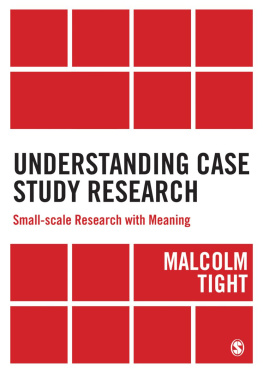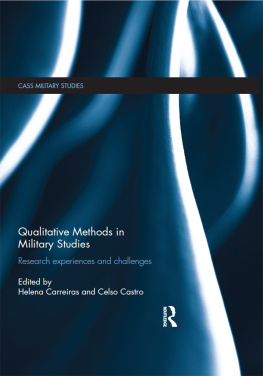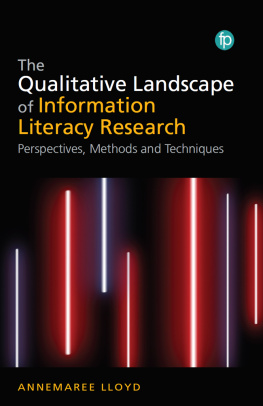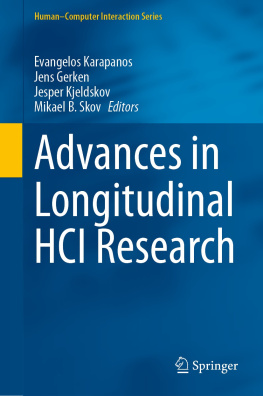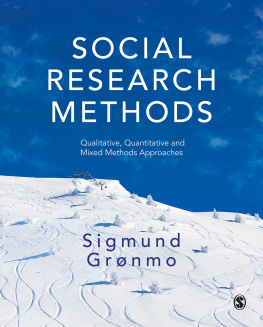APPLICATIONS OF SOCIAL RESEARCH METHODS TO QUESTIONS IN INFORMATION AND LIBRARY SCIENCE
Second Edition
Barbara M. Wildemuth, Editor

Copyright 2017 by Barbara M. Wildemuth
All rights reserved. No part of this publication may be reproduced, stored in a retrieval system, or transmitted, in any form or by any means, electronic, mechanical, photocopying, recording, or otherwise, except for the inclusion of brief quotations in a review, without prior permission in writing from the publisher.
Library of Congress Cataloging-in-Publication Data
Names: Wildemuth, Barbara M., editor.
Title: Applications of social research methods to questions in information and library science / Barbara M. Wildemuth, editor.
Description: Second edition. | Santa Barbara, California : Libraries Unlimited, [2017] | Includes bibliographical references and indexes.
Identifiers: LCCN 2016022414 (print) | LCCN 2016037725 (ebook) | ISBN 9781440839047 (hard copy : acid-free paper) | ISBN 9781440839054 (ebook)
Subjects: LCSH: Library scienceResearchMethodology. | Information scienceResearchMethodology.
Classification: LCC Z669.7.W55 2017 (print) | LCC Z669.7 (ebook) | DDC 020.72/1dc23
LC record available at https://lccn.loc.gov/2016022414
ISBN: 978-1-4408-3904-7
EISBN: 978-1-4408-3905-4
21 20 19 18 17 1 2 3 4 5
This book is also available as an eBook.
Libraries Unlimited
An Imprint of ABC-CLIO, LLC
ABC-CLIO, LLC
130 Cremona Drive, P.O. Box 1911
Santa Barbara, California 93116-1911
www.abc-clio.com
This book is printed on acid-free paper 
Manufactured in the United States of America
Contents
Barbara M. Wildemuth
Barbara M. Wildemuth
Barbara M. Wildemuth
Barbara M. Wildemuth
Barbara M. Wildemuth
Chad Morgan and Barbara M. Wildemuth
Songphan Choemprayong and Barbara M. Wildemuth
Abe J. Crystal and Barbara M. Wildemuth
Barbara M. Wildemuth
Lili Luo and Barbara M. Wildemuth
Carolyn Hank and Barbara M. Wildemuth
Barbara M. Wildemuth and Leo L. Cao
Barbara M. Wildemuth
Barbara M. Wildemuth
Barbara M. Wildemuth and Leo L. Cao
Carol L. Perryman and Barbara M. Wildemuth
Chad Morgan and Barbara M. Wildemuth
Barbara M. Wildemuth
Barbara M. Wildemuth
Laura Sheble, Barbara M. Wildemuth, and Kathy Brennan
Sanghee Oh and Barbara M. Wildemuth
Barbara M. Wildemuth
Barbara M. Wildemuth
Laura Sheble, Leslie Thomson, and Barbara M. Wildemuth
Yan Zhang and Barbara M. Wildemuth
Lili Luo and Barbara M. Wildemuth
Barbara M. Wildemuth and Mary Wilkins Jordan
Carolyn Hank, Mary Wilkins Jordan, and Barbara M. Wildemuth
Barbara M. Wildemuth
Songphan Choemprayong and Barbara M. Wildemuth
Kristina M. Spurgin and Barbara M. Wildemuth
Yan Zhang and Barbara M. Wildemuth
Barbara M. Wildemuth and Carol L. Perryman
Laura Sheble, Kathy Brennan, and Barbara M. Wildemuth
Barbara M. Wildemuth
Barbara M. Wildemuth
Barbara M. Wildemuth
Barbara M. Wildemuth
Abe J. Crystal and Barbara M. Wildemuth
Barbara M. Wildemuth
Acknowledgments
As with any other intellectual endeavor, the development of this book relied on the support of many people. I would particularly like to acknowledge the contributions of the following:
- The authors of the examples discussed in these chapters. Without a large body of excellent research from which to select examples, this book would not have been possible. Thank you for your scholarly efforts, both in their creativity and their rigor.
- My coauthors. All of the chapter coauthors were doctoral students at the University of North Carolina at Chapel Hill or recent graduates when these chapters were originally written. Thank you for your intellectual curiosity and your high standards for the quality of your work.
- My colleagues at the University of North Carolina. Thank you for the many ideas you gave me as I worked on particular chapters in this book and for your collegiality during the process of completing it.
- My editors at Libraries Unlimited, Blanche Woolls and Emma Bailey. Thank you for your encouragement and guidance.
- The School of Information and Library Science at the University of North Carolina at Chapel Hill, the Fulbright Scholar Program, and the Institute of Information Studies and Librarianship at Charles University (Prague). Thank you for your financial and material support during my work on the first edition of this manuscript.
- My family and friends, with particular thanks to my husband, Gaylen Brubaker. Thank you for your gentle nudges to complete this manuscript and for your never-failing encouragement.
PART I
INTRODUCTION
Using Research Results to Improve Practice in the Information Professions
Barbara M. Wildemuth
Research is formalized curiosity. It is poking and prying with a purpose. It is a seeking that he who wishes may know the cosmic secrets of the world and that they dwell therein.
Zora Neal Hurston (1942)
Information and library science (ILS) is a field that includes the profession of librarianship as well as a variety of other information professions (systems designer, database administrator, and information architect, to name a few). Although these professions are diverse in some aspects, in each case, their practice assumes a close interaction between the following:
- Information content, that is, the substance of the information being created, communicated, stored, and/or transformed
- The people who interact with the content, including the creators of information, recipients of information, or intermediaries in the communication process
- The technology used to support the creation, communication, storage, or transformation of the content
As with other professional fields, the research conducted in the field of ILS tends to be oriented toward the improvement of practice in these professions. Basic research may not have an impact on practice for a decade or more after it has been conducted, while more applied research and evaluation studies may have an impact on practice almost immediately. All along this research continuum, the researcher defines questions and conducts research studies that are motivated by the desire to improve practice in the information professions.
From the practitioners perspective, best practices can often be developed through significant amounts of direct experience. However, they can also be developed through an examination and application of research findings, as noted by Kaske (1993). For example, a study of student and faculty expectations of instant messaging for providing library reference services may guide the development of those services so that they are acceptable to and accepted by the intended users. This type of application of research resultsto improve professional practiceis called evidence-based practice , a variation of the term evidence-based medicine , which came into vogue in the late twentieth century (Rosenberg & Donald, 1995).
Two things need to happen for the information professions to profit from evidence-based practice. The first is that effective research studies need to be completed; the second is that their results need to be applied to particular situations and questions that occur in practice. The aim of this book is to support this first effort by improving our ability to conduct effective research studies. Most information professionals receive formal education in research methods during their masters degree education. The research method courses in graduate ILS programs are primarily supported by textbooks in related disciplines such as sociology and psychology. Although a number of these textbooks are well written and cover methods appropriate to our field, none of them contain examples illustrating how methods can be applied to ILS research questions. This book is intended to fill this gap, augmenting current research method textbooks. Specifically, it provides critical analyses of the application of a variety of social research methods to exemplary research questions in ILS.
Next page


